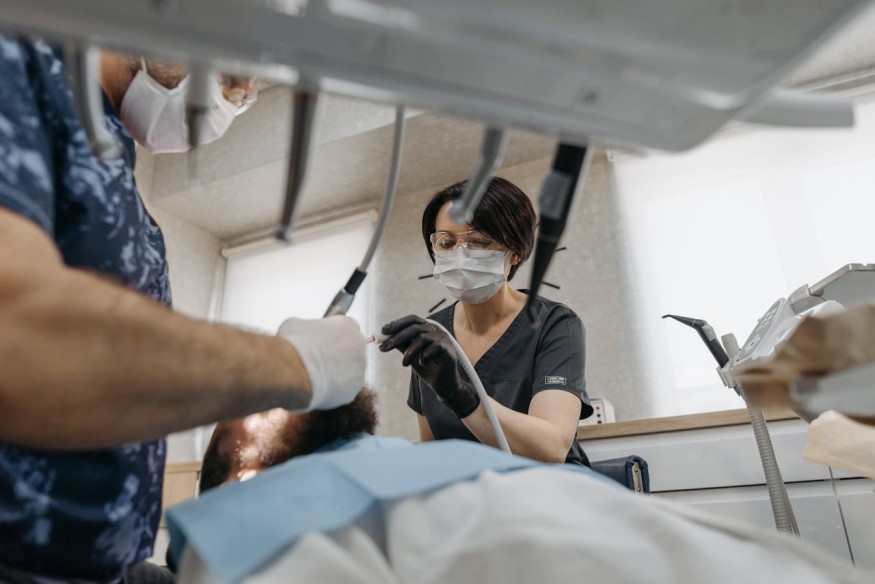
Dental Career Planning: A Guide for Aspiring Dentists
The prospect of a career in dentistry is alluring. For some, it's the fusion of science and artistry that captivates. For others, it's the opportunity to improve patients' lives directly through oral health care. Whatever your motivation, becoming a dentist can be a highly fulfilling vocation.
However, the path to becoming one can be challenging, requiring careful planning and a solid understanding of the path ahead. This guide can serve as your roadmap, equipping you with insights to navigate this journey strategically.
Let's unlock a world of possibilities by thoughtfully planning your dental career together. Read on.
Igniting Your Passion
Dentistry offers a variety of specialties. Do you envision yourself performing intricate root canals, crafting dazzling smiles with orthodontics, or perhaps working with children in pediatric dentistry?
Before embarking on your dental career, research different areas to discover what ignites your passion. Shadowing dentists in various specializations and talking to dental professionals about their daily routines and challenges can also provide invaluable firsthand experience and offer valuable insights to help you make informed decisions.
Building a Strong Foundation
Academic excellence is your springboard to dental school. First, you'll need a bachelor's degree in a science-related field like biology or chemistry. Load up on those prerequisite subjects—they're crucial for admission to dental school.
But academics alone won't cut it. You'll need to rack up an impressive GPA and stellar Dental Admissions Test (DAT) scores to stand out. Extracurriculars, research experience, and glowing recommendations also give you an edge. Volunteering at dental clinics or hospitals can also provide you exposure to the field and demonstrate your commitment.
Dental schools are ultra-competitive. So, bringing your A-game from day one is non-negotiable. Stay focused, work hard, and don't let this grueling yet rewarding journey intimidate you. Your dream career awaits those willing to go the distance.
Conquering Dental School
The cornerstone of becoming a dentist is a Doctor of Dental Surgery (DDS) or Doctor of Medicine in Dentistry (DMD) degree. You might be wondering about the difference between DMD and DDS degrees. While the titles may sound slightly different, the American Dental Association (ADA) considers them equivalent. This means that both degrees have the same requirements and signify the completion of an accredited dental program.
Once accepted into dental school, you'll embark on a rigorous four-year program that combines classroom instruction, laboratory work, and clinical experience. The curriculum covers a wide range of topics, including anatomy, physiology, pathology, pharmacology, radiology, and various dental specialties.
You'll also develop essential skills in diagnosing and treating oral health issues, as well as communicating effectively with patients.
Gaining Practical Experience

Dental schools provide a strong foundation, but real-world experience is essential. Most graduates pursue residencies in a specific area of dentistry, like oral surgery or orthodontics. These programs can last one to six years, depending on the chosen specialty. Residencies also provide hands-on training and mentorship under experienced dentists, allowing you to refine your skills and gain valuable clinical experience.
Licensure and Board Certification
Upon graduating from dental school, you'll need to obtain a license to practice dentistry in your state. This typically involves passing written and clinical examinations, as well as meeting specific requirements set by your state's dental board.
If you pursue a specialty, you may also need to obtain board certification, which involves additional training and examinations.
Practice Settings
As a licensed dentist, you'll have the opportunity to work in various practice settings, including private practices, dental clinics, hospitals, academic institutions, or government agencies. Each setting offers unique experiences and challenges. So, it's important to consider your personal preferences and career goals when choosing a practice environment.
Staying Engaged — Lifelong Learning
Dentistry is a constantly evolving field, with new techniques, technologies, and research findings continually emerging. So, to maintain your skills and stay current with the latest advancements, participating in continuing education programs throughout your career is crucial. These may include seminars, workshops, conferences, or online courses offered by professional associations, dental schools, or commercial providers.
Prioritizing Work-Life Balance
Pursuing a career in dentistry can be demanding, with long hours and the potential for stress. Therefore, it's crucial to prioritize your well-being and maintain a healthy work-life balance. This may involve setting boundaries, delegating tasks, and finding time for personal interests and hobbies outside of your practice.
Additionally, seeking support from colleagues, mentors, or professional counselors can help you navigate the challenges and prevent burnout.
Final Thoughts
Dental career planning is a multifaceted process that requires careful consideration and strategic decision-making. By understanding these aspects, you can position yourself for a fulfilling and rewarding career in dentistry. Remember, success in this field demands dedication, perseverance, and a genuine passion for improving people's oral health and overall well-being.
© 2025 ScienceTimes.com All rights reserved. Do not reproduce without permission. The window to the world of Science Times.










